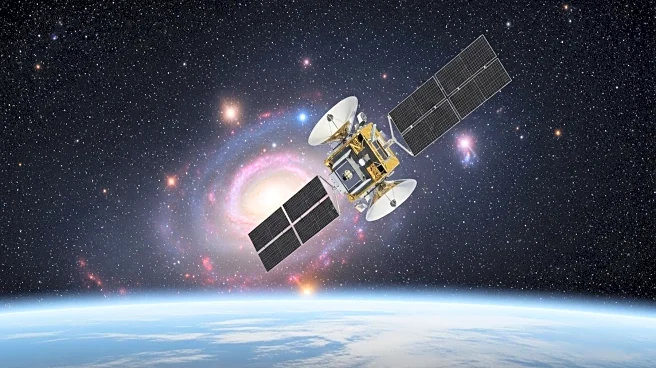What is the story about?
What's Happening?
A group of leading U.S. scientists has recommended the establishment of a standalone agency to promote and regulate the space industry. The proposed Space Promotion and Regulatory Agency would merge the FAA’s Office of Commercial Space Transportation and the Commerce Department’s Office of Space Commerce. This agency would be responsible for fulfilling U.S. obligations under the Outer Space Treaty, managing space traffic coordination, and rationalizing permitting processes. The agency would also advocate for the U.S. space industry, offering loans and grants to support commercial research and development. The regulatory aspect would include licensing U.S. commercial space activities and managing the Traffic Coordination System for Space (TraCSS). The proposal highlights the need for separation between promotional and regulatory functions within the agency.
Why It's Important?
The creation of a dedicated agency for space operations could significantly impact the U.S. space industry by streamlining regulatory processes and enhancing support for commercial ventures. This move could bolster the U.S.'s competitive edge in the global space economy, ensuring compliance with international treaties while fostering innovation. The agency's ability to offer financial support could accelerate technological advancements and commercial growth. Additionally, the proposal addresses potential economic threats, such as satellite interference with critical missions, and emphasizes the importance of insurance for space missions. By coordinating with international entities like the European Union, the agency could protect U.S. companies from adverse effects of foreign regulations.
What's Next?
If the proposal gains traction, Congress may consider legislation to establish the Space Promotion and Regulatory Agency. This could lead to debates on the agency's structure, funding, and scope of authority. Stakeholders in the space industry, including commercial operators and regulatory bodies, may engage in discussions to shape the agency's mandate. The proposal's emphasis on international collaboration suggests potential diplomatic efforts to align U.S. and EU space policies. The agency's formation could prompt adjustments in existing space-related offices and policies, aiming for a more cohesive approach to space governance.
Beyond the Headlines
The establishment of a new agency could have long-term implications for U.S. space policy, potentially setting a precedent for how space activities are governed globally. Ethical considerations, such as the management of space debris and the retrieval of abandoned spacecraft, could become focal points in policy discussions. The agency's role in promoting space commerce might influence cultural perceptions of space exploration, highlighting its economic and scientific potential. As space becomes increasingly commercialized, the agency could play a crucial role in balancing innovation with safety and sustainability.

















